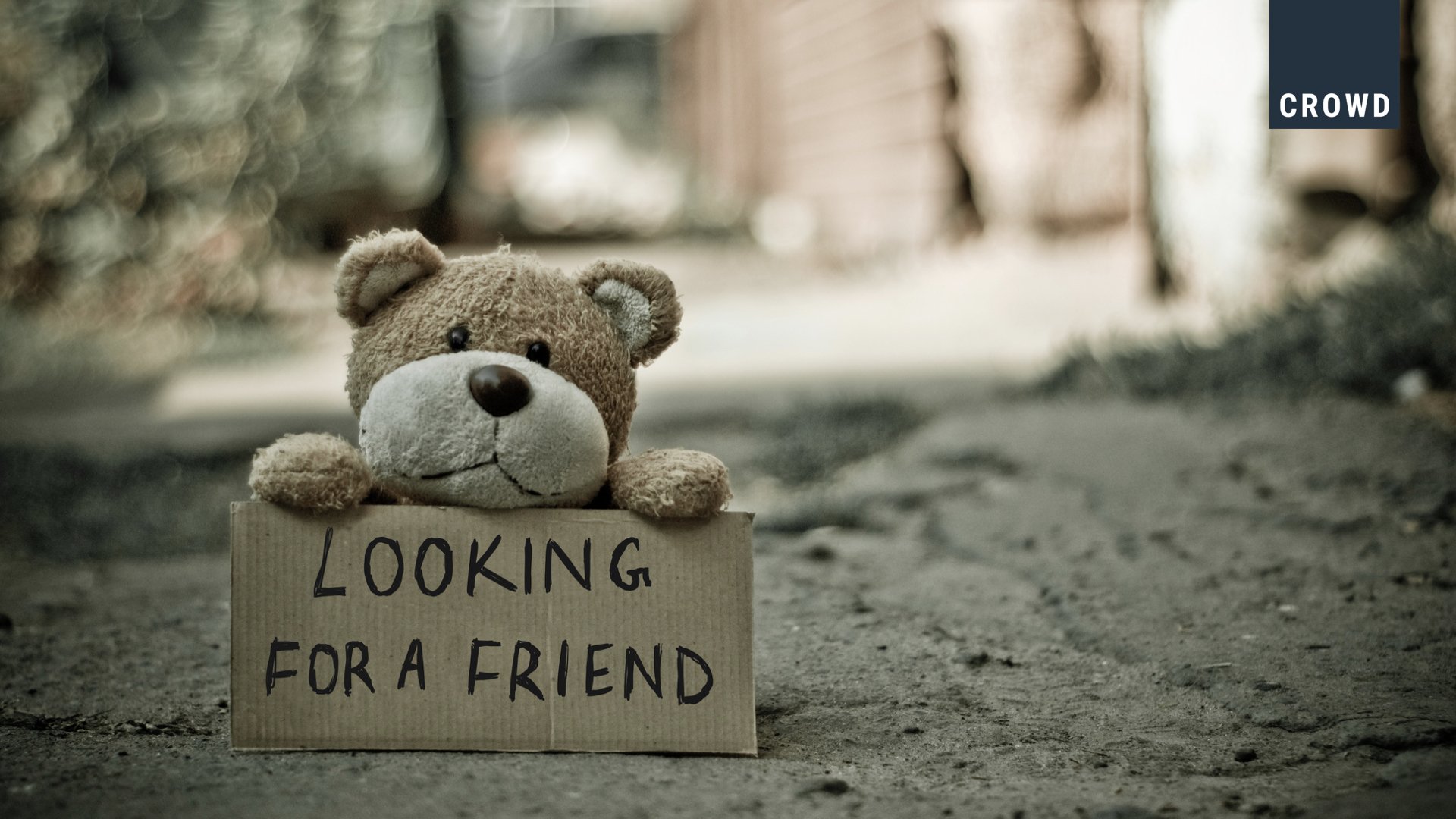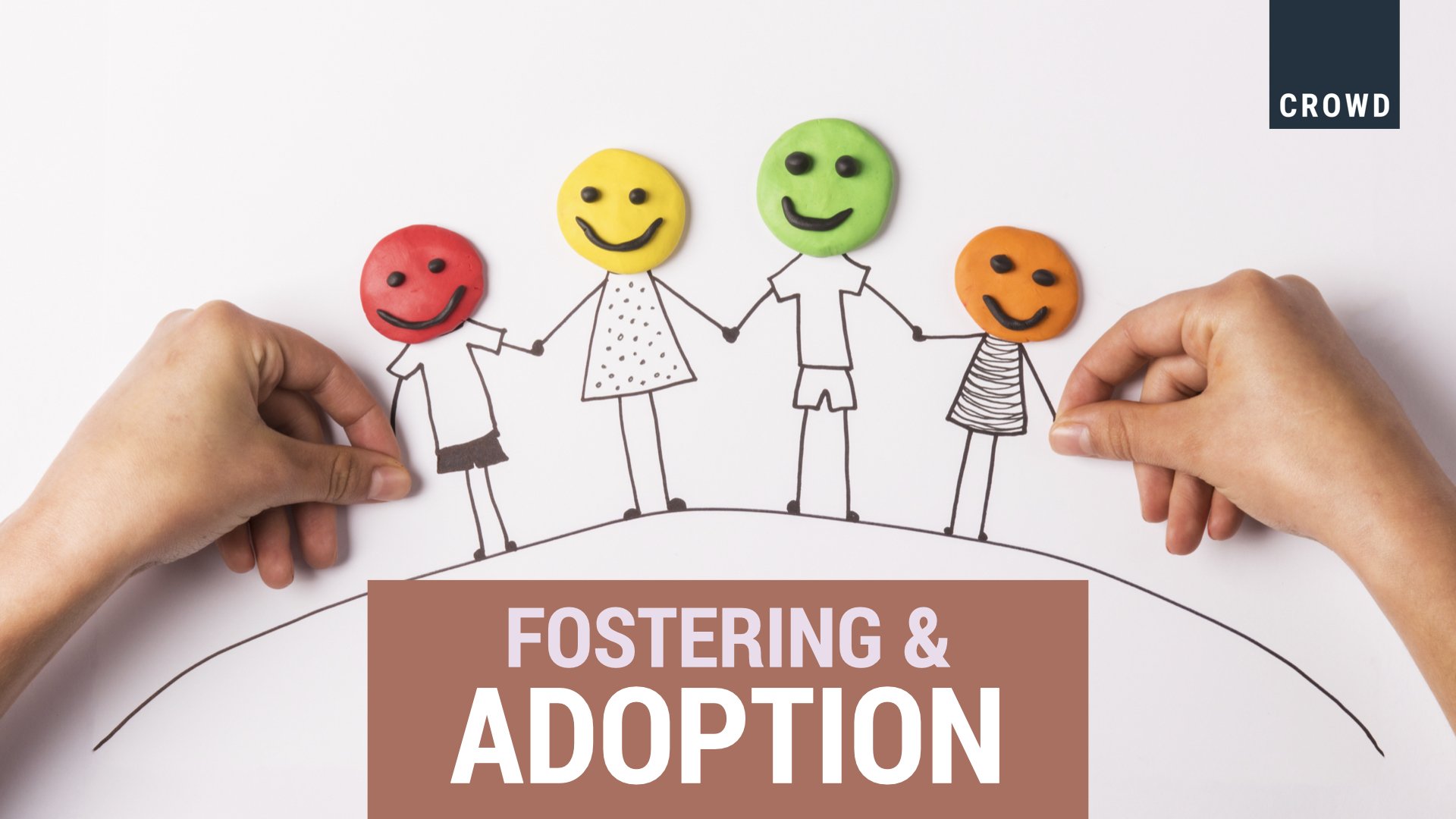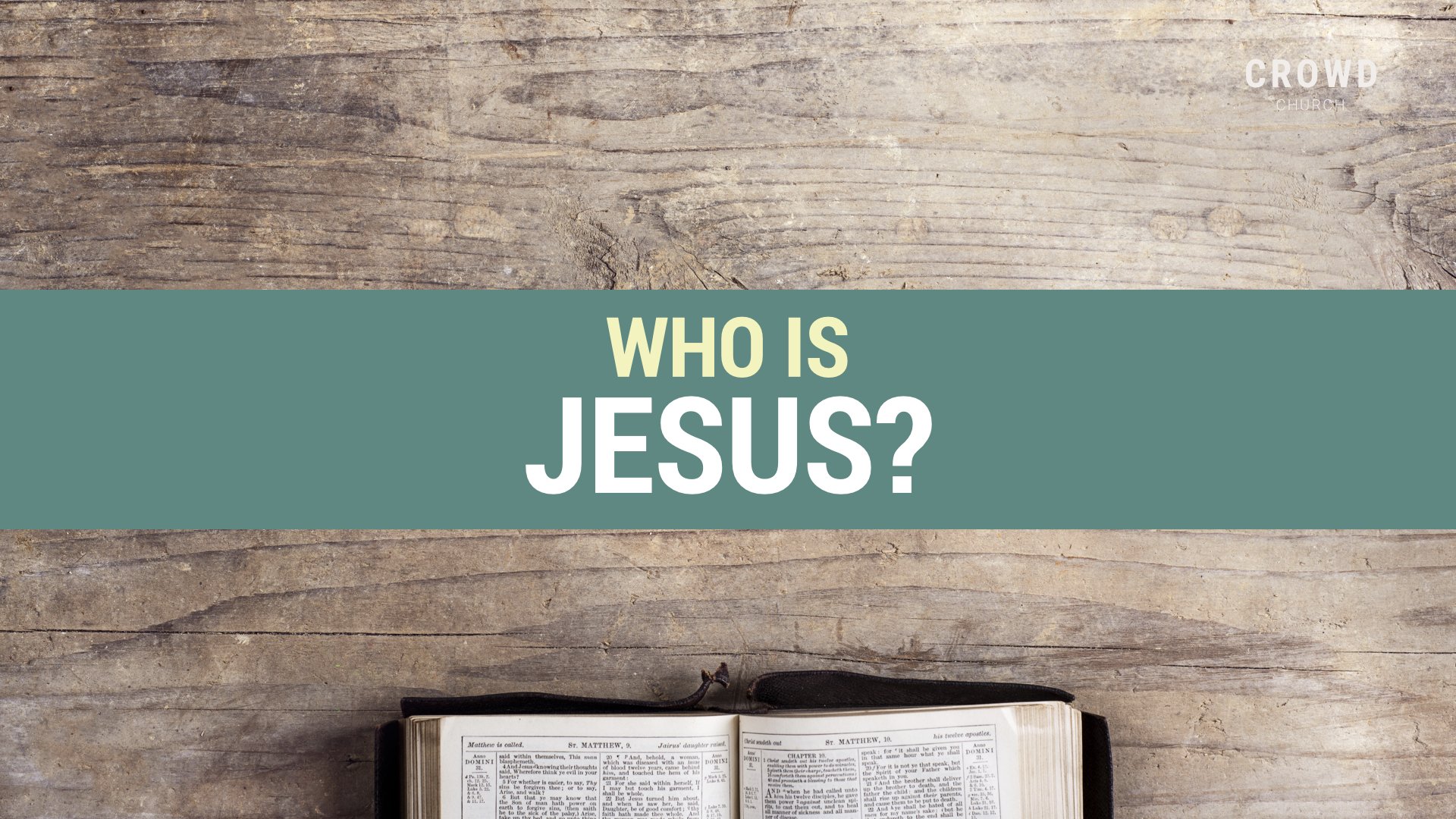What Does The Bible Say About Truth?
Video Timeline
WELCOME
0:00 - Welcome with Matt & Phil
TALK with Sharon Edmundson
06:46 - What does the Bible say about Truth?
06:50 - What Is Truth?
07:16 - An Example From My Marriage
08:31 - Obejective/Subjective Truth
08:42 - Snickers vs Kitkat Analogy
10:07 - Two Story Truth
11:15 - Pluralism anf Tolerance
12:28 - Religious Truth Claims Are Objective
15:13 - Truth Claims Of The Bible
15:21 - 1.Origins
16:50 - 2. People
17:36 - 3. What's Wrong With The World?
19:45 - 4. The Solution
20:42 - 5. We Can Know The Truth
PRAYER
23:47 - Prayer For Ukraine
WORSHIP
26:27 - The Lion & the Lamb with lyrics
CONVERSATION STREET with Matt & Phil
31:04 - Conversation Street
CLOSING WORSHIP
1:01:26 - Christ Our Hope In Life And Death with lyrics
Podcast:
What does the Bible say about Truth?
— Sharon Edmundson
What is Truth?
Today’s subject is, ‘What does the bible say about truth?’. I say this every time, but this is a massive subject and I’m only just skimming the surface today. Hopefully we’ll be able to pick up on some of the bits I can’t cover here in conversation street.
So let’s start by defining truth.
The dictionary defines truth as, ‘that which is true or in accordance with fact or reality.’
An example from my Marriage
When I married Matt we agreed that in our marriage we would only ask each other questions that we were prepared to hear an honest answer to. So for example, I was not going to ask, ‘Does my bum look big in this?’ unless I was prepared to hear an answer I didn’t want to hear. We knew that the bible says to tell the truth and we wanted to always encourage each other to do that. Here is one of the verses that speaks about telling the truth.
“Therefore each of you must put off falsehood and speak truthfully to your neighbour, for we are all members of one body.”
Have a look at these verses though:
“Instead, speaking the truth in love, we will grow to become in every respect the mature body of him who is the head, that is, Christ.”
The Bible says we need love to go with our truth. Truth without love is needlessly hurtful. Love without truth leaves us in danger of going down the wrong path.
So, the Bible tells us to tell the truth but it says a whole lot more about the subject than that. It makes a lot of claims about the nature of truth. It makes a lot of truth claims. Before I get into some of the specific truth claims of the Bible I want to look into the subject of truth claims.
Objective/ subjective truth
Truth claims can be subjective or objective.
Snickers Vs KitKat Analogy
Now, on these livestreams, after the bit we call conversation street, we used to end with a bit of a silly question just for fun. The question could be something like, ‘Which is the best chocolate bar, ‘Snickers or KitKat’ and people would write in the comments which chocolate bar they thought was the best, and which ever two people were hosting the livestream that week would get into a friendly argument and a bit of banter about which was the best.
The answer to that question and most of the questions we asked in that section were subjective. The answer to the question about the chocolate bar doesn’t depend on the actual chocolate bar, it depends on your opinion. So, I could make the claim that Snickers is the better chocolate bar but that is just my opinion and actually next week I might change my mind and say that KitKat is the better chocolate bar.
If however, I say that Snickers has the higher percentage of sugar than KitKat, I would be making an objective truth claim. My truth claim is either objectively true or objectively false. The answer doesn’t depend on my opinion it depends on reality.
Subjective claims depend on the subject, on the person making the claim. Objective claims depend on the object, the thing the claim is being made about.
Are the truth claims of the Bible objective or subjective?
Two story truth
Francis Schaeffer, who was a theologian, philosopher and pastor, had something to say about this. He said,
“People tend to organise truth claims as if they are in a two-story house with objectives truths on the ground floor and subjective truths on the first floor.”
— Francis Schaeffer
So on the ground floor we tend to put things like maths and science. On the first floor we put personal opinions. The problem, he said, is that sometime we put things on the wrong floor. He said that in western culture we tend to put belief about God and morality in with the subjective truth claims on the first floor.
You may hear people say things such as, 'It’s great that you believe in God if that makes you happy but I don’t believe in God. You do you and I’ll do me.’
Beliefs about God and faith are the sort of beliefs we are told we have to put aside if we want to learn about the real world. There’s a disconnect between the two stories of the house. A disconnect between faith and how we are expected to live in the real world. There’s a sacred/secular divide.
Pluralism and Tolerance
In the west there’s not only a tendency of thinking that religious beliefs are subjective, there can also be a tendency to think that all beliefs are equal, that all religions lead to God. We are told to be tolerant of other views.
The old definition of tolerance was to be respectful towards people whose opinions, beliefs, religion and so on differ to our own. In other words, tolerance required disagreement of ideas but respect towards people. And I think this version of tolerance is quite helpful. It means we can discuss and debate in order to discover what is really true and what isn’t. The Bible encourages us not just to accept the latest ideas floating around but to test them to see if they’re true.
Nowadays the definition of tolerance seems to have changed to mean that you have to agree that all views are equal. If you say that you think someone else’s views are wrong or that one particular view is right, you are seen as intolerant or maybe even hateful.
So should religious truth claims be put on the first floor of the house with all the subjective truth claims, or should they be on the ground floor with the objective truth claims?
Religious truth claims are objective.
I want to show you that religious truth claims are objective not subjective. For example, the atheist says there is no God, but the Jew, the Muslim and the Christian say that there is. Either the atheist is right and the others are wrong or the Jew, Muslim and Christian are right and the atheist is wrong. The atheist’s claim that there is no God is either objectively true or objectively false. No-one can make it true or false by what they believe.
Christians believe that Jesus died on a cross and was raised to life again. Muslims don’t believe he even died on the cross, let alone be raised to life. They can’t both be right. But the claim that Jesus died and resurrected is either objectively true, or objectively false. What we believe about the matter doesn’t change the facts.
Eastern religions believe that God is not personal but is a force. Christians believe that he is personal.
“Jesus said this, “I am the way and the truth and the life. No one comes to the Father except through me.’ ”
He is basically saying no-one can have a relationship with God unless they do it through him. That is either true or false. It’s not a matter of opinion. Hopefully you can see that claims about God are not subjective but objective. They are either objectively true or objectively false. The claims of the Bible are either objectively true or objectively false.
C.S Lewis put it this way:
‘Christianity is not a patent medicine. Christianity claims to give an account of the facts - to tell you what the real universe is like. Its account of the universe may be true, or it may not, and once the question is before you, then your natural inquisitiveness must make you want to know the answer. If Christianity is untrue, then no honest man will want to believe it, however helpful it might be; if it is true, every honest man will want to believe it, even if it give him no help at all.’
— C. S. Lewis
‘Christianity is not merely religious truth, it is total truth - truth about the whole of reality.’
— Francis Schaeffer
With Christianity, the ground floor and the first floor of our house are not unrelated, they are integrated. If God is real and He’s the God of the Bible, He has stuff to say about every aspect of our life from who we are as humans, what the problem with the world is, what the solution is, morality, how to deal with our emotions, how our relationships should work, money, life after death, how a country should be governed … everything. They all work together as a united whole. There is no sacred/secular divide.
Truth claims of the Bible
So lets look at some of the specific truth claims from the Bible and a tiny bit about how they relate to life in the real world.
#1 - Origins
The first book of the Bible, Genesis, is about the origin of so many things. It says that God is eternal, he has always existed, but that he created everything. And that we can know something of God from looking at what he has made just as you can see something of the artist in their artwork.
“For since the creation of the world God’s invisible qualities—his eternal power and divine nature—have been clearly seen, being understood from what has been made, so that people are without excuse.”
When we look up into space or down into the details of a single cell it can give us a sense of awe. One of the things that convinces me of God’s existence from creation, other than there being a creation at all, is the DNA in every cell of our bodies.
DNA is a long molecule that contains our genetic code. It’s an instruction manual for making all the proteins in our bodies. It’s a language. In every other scenario in life, language points to intelligence and I think DNA points to an intelligent creator. There are many other things from the physical world that point to a creator.
Hugh Ross is an astrophysicist who, through science, saw that God must exist. In his search for God he ended up becoming a Christian.
#2 - People
What about people? The Bible gives people dignity and worth just from being humans because it says we’re made in the image of God.
“Then God said, “Let us make mankind in our image, in our likeness, so that they may rule over the fish in the sea and the birds in the sky, over the livestock and all the wild animals, and over all the creatures that move along the ground.””
It doesn’t matter what race or sex we are, how old or young, or how much we contribute to society, we all have innate worth and value. This is the best foundation for human rights to sit on and for racial equality.
#3 - What’s wrong with the world
So that all sounds very nice but I think we can all agree that as well as seeing amazing design and beauty in the world, there’s also a fair few things that are not too good. Corona, wars, people having to flee their countries, cancer, child abuse…you get the picture.
In the previous verses I read, we saw that God gave people the job of ruling on earth on his behalf. The idea was for us to do this in a trusting relationship with Him. He did, after all, set the whole thing up and knows the best way for it all to work. Unfortunately, the first people he made decided to rebel and do things their own way. This then broke their relationship with God and sent the whole of creation into decay.
So now, as each of us is born into the world, we grow up having a sense of something being missing. We sense something more than just the physical world but we can’t quite connect. So according to the Bible, the problem in the world is our broken relationship with God as a result of our rebellion. The Bible calls this rebellion sin. This is a problem for every single person.
“for all have sinned and fall short of the glory of God,”
Society often pits different people against each other but according to the bible the source of the problem in the world isn’t a particular race or colour of people, it’s not the rich or the poor, it’s not chauvinistic men or feminist women, it’s our rebellion against God. The problem is in all of us. Even those of us who think we’re good people. All of the good stuff we do… this is what God has to say about it:
“All of us have become like one who is unclean, and all our righteous acts are like filthy rags.”
It’s no wonder we can’t connect with God. He is so perfect and beautiful, how can any of us stand before him. If He just let’s us off from our sin, He wouldn’t be perfectly just. If He doesn’t let us off how can He love us as He wants to?
#4 - The solution
It all sounds a bit depressing, but the Bible is actually good news. Because God has a solution to the problem of our filthiness and disconnect from Him. He came to earth in human form as Jesus to take the punishment for our rebellion so he can be just, and so he can reconnect us with Him so that he can love us as he wants to.
“For if, while we were God’s enemies, we were reconciled to him through the death of his Son, how much more, having been reconciled, shall we be saved through his life.”
God loved us while we were his enemies. And that gives us a great basis for loving everyone whether or not they agree with us. It gives us a great basis for the original definition of tolerance.
The Bible also gives us hope for the future. That one day, God is going to finish what he started and put an end to all suffering and pain.
#5 - We can know the truth
The Bible tells us that we can know truth, not just through scientific study of the world around us but through God’s words in His holy book, the Bible, through Jesus and through his Holy Spirit. And that truth isn’t just a set of facts to be learnt, it’s personal. As I said before, Jesus said He IS Truth. All other truth originates from him. And his truth brings freedom and beauty. I’ll finish with these words from Jesus.
“If you hold to my teaching, you are really my disciples. Then you will know the truth, and the truth will set you free.””
CONVERSATION STREET
With: Matt Edmundson & Phil Watson.
What is Conversation Street?
Conversation Street is part of our live stream, where the hosts (in this case, Matt & Phil) chat through Sharon’s talk and answer questions that were sent in through the live stream. To watch the conversation now, click here.
Matt - There is one clear and obvious question, Phil,
"What is Bruce talking about in the comments when it comes to the Skips?"
Phil - Well, this is a very good example of truth, Matthew, and it's a great chance for me to get my point across. My brother's version of events is in 1978, in the house where we grew up that my parents still live in which is near Sutton, in Surrey, or South London. We ate our pack of crisps when we came home from school at the end of the day, and our preferred packet was almost always Skips. And in those days, you could only get Skips Prawn Cocktail. And my brother thinks that I ate a whole family size pack back in those days. And I'm going to say that it's possible. It's possibly true I did eat the whole pack. This is truth and reconciliation. I probably did it out of retaliation for him eating some KP Discos the day before and it becomes this big joke.
And I think like so many stories in so many families, no one can actually remember what really happened. But every now and again say for example, we're together and we're having a meal, I will nick food off his plate and I'll go "That's because you stole all the KP discos in 1978" and then he'll eat my food and he'll go "That's because you took all the Skips". I'm being facetious and it is silly. It is funny but unfortunately if you're not careful this is how sometimes people fall out. You can't even remember what you fell out about but you've decided to take offence. I'm moving away from truth on a whole another biblical topic of forgiveness, truth & reconciliation.
Matt - Well, they're all in there, those topics. Aren't they?
Phil - Don't fall out over anything. It's not worth it. Especially not snacks.
Matt - Bruce has written in the comments this is largely true. I have to say that KP Discos was a much better choice than Skips, because Skips are just all kinds of wrong. I'm not gonna lie.
Phil - Once again, you're wrong, Matt. But that's your opinion. Isn't it wonderful when you and I know each other well enough to know your opinion, my opinion, not a problem. And we might have a joke and go fact or we might go truth. We know we're mucking about. And going on to this topic, there are occasions when somebody insists on monopolising the truth, saying, Oh, no, no, what I think is the truth and you go, yeah, but you've just given it away, because you've said think, or feel or understand. A truth is a known fact. Not what you think or what you want to be true.
Subjective Truth vs Objective Truth
And I really appreciated that prayer for Ukraine. Like everybody else, I follow the media. I'm quite a big fan of history. There's something called propaganda and that is when a nation, states or large organisations come up with their own version of the truth because they want you to think or feel something. And they try and control the media. I know Putin's a powerful man, but I'm not scared of him. And I'm going to suggest that he and his organisations disseminate absolute nonsense about Ukraine.
The definition of war is an armed conflict between nations or people groups, and Putin and the Russian government, are saying this is not a war. It's a mission. And what they're doing is they're manipulating language to try and explain away what they're doing. And I do pray for peace in Ukraine. We're not here again to talk about evil and suffering. But human beings have free will, and when one nation's collective freewill is used to impose and bully and attack another nation's freedom and their own sovereignty, that's an abuse of freewill. And it's great when people can pray. It's also great when people can show whatever form of solidarity and practical help that they can send.
Matt - Yeah, absolutely. I totally agree with that Phil. Now, Sharon talked about Subjective Truth and Objective truth. And we've just given some examples there of Subjective Truth - Skips, KP Discos, Snickers bars, for example. And then you've actually talked about how Putin and propaganda is trying to take something which they subjectively think is true, to be an objective truth. They're trying to convince the people that this is actually truth and reality, when it totally isn't.
As an RE (Religious Education) teacher you've had some interesting conversations around this whole topic of truth and what people perceive it to be?
Phil - Well, as a teacher, you're always trying to get young people to ask where is your information from? And there are various sources that you and I probably give more respect and regard to, often known as critical thinking. And so when you get a kid going, No, no, no, I know the truth, because I saw it on a TikTok. I'm saying, "Yeah, Yeah, but who made the TikTok?"
We all know how easy it is to manipulate media. I am a real person, you are a real person, I've met you, you're in the room next door. We are not bots, we are not fabricated. But how easy it is to fabricate or to create a gossip or rumour through social media and think this TikTok must be true because a billion people liked it. But that doesn't matter. Back in the day, most people on the planet thought the world was flat. And it wasn't. Just because lots of people think something is true, doesn't make it true.
Matt - And that was a point Sharon was making, wasn't it? And I think you're right with social media, which is why I think even with things like the war in Ukraine and all of that sort of stuff. Actually, be careful where you get your news source from, because social media is a really interesting platform. Because the more you look at something, the more it feeds you that very thing. So if what you're looking at isn't the whole picture, for example, if you look at right wing politics, all it's going to show you is right wing politics, if you look at left wing politics, all it's going to show you is left wing, and you miss the whole picture, don't you?
And we actually saw that, dare I say, with another powerful man that maybe shouldn't have been in power, which was Donald Trump. But he used social media to to his advantage in that way because you can bring that propaganda through social media. So I like this question what's your source of truth?
The Idea of Worldview
And the other thing that Sharon and I talk about a lot is this whole idea of worldview. So, worldview is the lens of which you look at through the world. So today we had Frontline, which is the church both you and I attend that Crowd's part of. We had Chine McDonald talking about her book called "God is not a white man", which I think is a great book, and you should definitely read it. And we talked about what does the Bible say about racism with Tony a few weeks ago?
But a worldview would be I am a white, heterosexual, middle class, man living in the north of England, I have a certain way of viewing the world, right? And you're similar, but even you and I have different lenses in which we look at the world. You're a teacher, I'm a businessman. And so that automatically brings certain differences. And so, when it comes to tolerance and difference, you have to understand the lens through which you're looking at the world.
And this was one of Chine's points that actually there are different lenses, she used the phrase mosaic where there are different people, different cultures. And, missionaries for years would go and anglicise people. They taught people how to eat with a knife and fork rather than celebrating diversity in culture, which was, you know, that's the bit that was missing.
And so there is this lens in which you view the world. And you have to understand that we have a lens through which we understand the gospel, right?
Phil - Definitely. When I worked in various areas of industries, we used to talk about 360 degree analyses. So I can tell you what it looks like to teach 32 kids in a classroom. But what's their experience of that? And if this happens in all our relationships, so again, to go back to the rather daft example of me and my brother's crisps. He had one view, I had one view. I expect mum and dad had another amount of information to input into this, should we decide to go back to 1978 and discuss it. And I think within families, young people, particularly kids, have their own view of family life. And you might go no, that's not true. That's not right. But it's actually what they see from where they are. And it's legitimate because it's their viewpoint. But it might not be the whole truth.
Which is why when you first said "Let's talk about truth", you promised to say the truth, the whole truth, and nothing but the truth. And I think we have to be careful, because I might go, this is the truth. And it could be as far as you're concerned.
Your perspective is your perspective. And that's legitimate. It's your lived experience. I've never lived the life of a black man or a black woman or a woman. And so I have to go, okay, that's your lived experience. Mine is different. It doesn't negate what they're saying. But that doesn't mean it could be true. It doesn't mean it's the whole truth. And it doesn't mean its nothing but the truth.
This is the other thing that I think all human beings have a tendency to do, which is I will give you some truth, if it suits me and reflects well on me, but I might not give you the whole truth. And then I might add some bits just just to make me look less bad. And like Sharon said in her talk, I'm only going to ask you a question about me if I'm prepared to cope with the answer. Classic one about "Does my bum look big in this?"
What Lies do to Relationships
Whatever your relationships are with other people, if you lie (the opposite of truth), your relationships will break down. Because most people can, in my experience, cope with arguments. They can cope with disagreements, they can cope with somebody not treating them very well. But once you start lying, you destroy trust. And then, no relationship survives, which is on a macro level what we've got in Ukraine and Russia, "You're lying. How can we trust you when we know you're lying?"
But most of us live in a much more smaller environment. So with your partner, your children, your wider family, your work colleagues, you must be truthful. The Bible says speak truthfully. Speak it with love. So that doesn't mean you can go into work tomorrow and go, "the truth is, I don't like you. And I'm gonna tell you why." Although I really would quite like to do that, it actually isn't very loving.
And so with your partner, your wife, your husband, whoever, you live with, you have to ask "If I tell them this truth is it going to help them or not? Is it going to be a blessing to them or not? It's truth and love. You've got to have them both in equal measures. Because sometimes you do have to tell people, I guess we call them unpleasant truths/confrontation. But if you're not doing it out of love, and I guess one way of looking at it is, if it doesn't hurt you or cost you, probably you should be quiet.
Matt - That's a really interesting point, though, this whole idea that lies break down relationships. And I certainly hear it from people who would argue against the Bible being objectively true. So like Sharon said, it's either true or isn't. And for Christians, that is true. Jesus is the truth. And so one of the things that I've heard is, you can be your own truth or make your own truth, or even statements like, there is no truth. Which if you think about it is self refuting. You can't say there is no truth, because that's a definitive thing. Therefore, what you've said is not true.
But I just wonder why it is that the failure of truth or lying, just has such a profound impact on society. I would argue, I suppose, from a Christian worldview, that actually if Jesus is the truth, then actually you can understand why lies have such a profound impact on society and why that is so very, very bad, and to destroy truth or to make truth out to be non-existent.
You can't get away from the fact that actually lies wreck things, right?
Phil - Lies wreck things. And from a biblical perspective, go right back to the Garden of Eden, the fact that Adam and Eve tried to deceive God, began to lie. And then you see the history of God's people, the Jewish people in the Old Testament, it's almost like two sets of soap operas! The people's relationship with God, and God's relationship with the people and how they would get on with each other having a close and positive relationship, and how they would fall out with each other. That's a very glib summary of the Old Testament. And that's almost a summary of the New Testament too. When you lie or try to deceive somebody, you destroy relationship. And whilst you might get what you want, in the short term, I can't help thinking that long term, it's a really bad strategy.
Matt - Yeah, I agree with you.
Phil - We're bouncing between World Politics and what happens in my semi-detached house just off Penny Lane. But in your own relationships, if you are lying and deceiving, you are controlling and you're not actually letting anyone see who you really are.
Silly example, remember saying this to a kid at school, put your chewy in the bin, and she wasn't allowed to chew gum and she said, "I'm not chewing gum" and you thought, "Oh no, this has gone from a mild irritation of your chewing gum to you lying to me". And then it all escalates out of proportion. And then ultimately, this kid got into a lot of trouble. Said "all I was doing was chewing gum" and you go "No, no, no. You know you're missing the point there and you're deliberately missing the point because you're still lying. It has nothing to do with chewing gum and everything to do with you lying". It breaks relationship and if somebody breaks relationship in one area, it's very hard to trust them.
Matt - That's very, very true. Now Sharon has put here in the comments that world-views provide us with a background theory of how the universe came into being who and what we are, what is wrong with the world, and what is the solution. And then what happens to us when we die. And she's put everyone has a worldview, whether or not we spent time thinking about it. And that's very true.
Going back to the way I think about racism and dealing with the problem of racism is going to be different to how Tony, who is of mixed race or Chine thinks about racism, who is from Nigeria, and those sort of world-views do pepper what is going on.
And if you have the worldview, that actually telling lies is a good thing? I think one of the hardest things to do is to actually be totally honest. And not just like me to you, but actually me to me. I mean, to be brutally honest with myself over even simple things like anxiety, or my mental health, or how much rest I'm taking, or all that sort of stuff. You can deceive yourself quite easily, I think, but actually being truthful with yourself, that's quite a tricky thing.
Phil - I think you're absolutely right, because we were both at the same church this morning with this brilliant lady Chine talking about race and racism, and how you can have a line that becomes so pervasive in a society that everybody believes the lie to be self evidently true. I'm almost echoing Martin Luther King there, maybe we'll get onto in a minute.
But the idea that white people are superior to black people was a truth that was so pervasive that I think people grew up just assuming it was the case. And that allowed people to justify slavery, it allowed people to justify all manner of horrific racism. And then, people, brave people reflected on this and went, "This isn't true. This isn't God's plan for human beings. This isn't fair."
And so you have to sometimes challenge a cultural lie. And you and I have grown up in the last 40-50 years in a culture. And I'm pretty sure there are various things that we have grown up assuming to be true, that we might not be even reflecting on but they're deep down inside us. And one of the things which I've enjoyed a lot about being a Christian, is the emphasis on truth.
And I know the church is responsible for all sorts of terrible things. whether Catholic, Protestant, Anglican, non-denominational, all sorts of terrible things. But the Bible keeps coming back to the truth, the truth setting you free. It talks about the devil being the father of lies and deceptions. And actually reflecting on who you are, and what you think, and what you believe, is a journey, and you can find out a lot of it, in my opinion, by going to a good church, thinking about it, reading the Bible, talking to God about it, and slavery is an interesting one isn't it? Because the Bible was used to justify slavery, wrongly, in my opinion.
But it just reminds me of Martin Luther King saying, "We believe these truths to be self evident". And to me, one of them is all people were made in the image of God.
Matt - And there's nothing else to put after that, is there?
Phil - No. But if you live in a culture that doesn't accept that, you might have to reflect on that a little bit and go "hang on a minute, why have I been told that there is a hierarchy?" And I probably as a white British man, born in 1970, grew up thinking there is a hierarchy.
I think one of the things Chine said this morning was if you watch British media, the portrayal of young black men is almost always in the role of some sort of criminal perpetrator, whether that's in fictional TV films or just on the media generally, and you go, "Aha, I've got to be aware of this because this is going to infiltrate my view of young black men."
Matt - That's a good example. I think the statistic was over 80 odd percent. It was crazy. And I've had this conversation with my daughter, on social media, TV, she'll see over 3000 images a day of what beauty is defined by culture. And so that's pervasive, that sinks in. And actually, I think the role of a father here comes along and goes, "Now hang on a minute, we need to bring a little bit of truth in here. Let's look at what the Bible says and let's understand this. We're created in the image of God." Just full stop.
The Greatest Truth
Phil - We come back to that again, we're all created in the image of God, full stop. God looks on the inside. We're beautiful people. God loves us. And I guess this is the fundamental to me. We believe more or less the same thing. We might have disagreements about the greatest football team, the right chocolate bar, the best crisps, but to quote my old friend Dave, there's only four things you need to know. One is God loves you. Number two is you sinned. Number three, Jesus died for you. And number four, you need to decide what you're going to do with that information. Everything else is important, but those are the four fundamentals of official faith.
Matt - Exactly. And like Sharon said, that is objective truth right there. It's true whether or not you believe it, or whether you believe it or not doesn't change the fact that it is truth. It's either right or wrong. Jesus either did come or he didn't. He either died for your sins, or he didn't. What you believe about that has no bearing on whether that event actually happened or not.
Phil - Wherever you are, wherever you're watching, there will be stresses, you might be harbouring some sort of anger or bitterness or judgement against somebody. And the solution to that is this great biblical principle. You might have to be quite blunt about it. You might have to get to the truth about it, but somebody needs to forgive somebody.
And God, in my experience, is certainly in the business of families and friends and relationships working successfully, working well. He doesn't want us to live in antagonism with one another, whether that's in our family, or between countries. And one way of doing that is to speak truth, but with love or speak love but with truth and a very big dollop of forgiveness. I know I needed forgiving. I wasn't the worst person in the world and I'm still not, but I know that I need forgiveness for the sins that I commit and the good things that I don't do as well.
More Bible Verses on Truth
1 John 3:18 - Dear children, let us not love with words or speech but with actions and in truth.
1 John 4:6 - We are from God, and whoever knows God listens to us; but whoever is not from God does not listen to us. This is how we recognise the Spirit of truth and the spirit of falsehood.
2 Timothy 2:15 - Do your best to present yourself to God as one approved, a worker who does not need to be ashamed and who correctly handles the word of truth.
Ephesians 6:14 - Stand firm then, with the belt of truth buckled around your waist, with the breastplate of righteousness in place,
James 1:18 - He chose to give us birth through the word of truth, that we might be a kind of firstfruits of all he created.
John 1:14 - The Word became flesh and made his dwelling among us. We have seen his glory, the glory of the one and only Son, who came from the Father, full of grace and truth.
John 14:6 - Jesus answered, “I am the way and the truth and the life. No one comes to the Father except through me.
John 16:13 - But when he, the Spirit of truth, comes, he will guide you into all the truth. He will not speak on his own; he will speak only what he hears, and he will tell you what is yet to come.
Psalm 145:18 - The LORD is near to all who call on him, to all who call on him in truth.
John 17:3 - Now this is eternal life: that they know you, the only true God, and Jesus Christ, whom you have sent.
Psalm 119:160 - The sum of your word is truth, and every one of your righteous rules endures forever.
John 18:37 - “You are a king, then!” said Pilate. Jesus answered, “You say that I am a king. In fact, the reason I was born and came into the world is to testify to the truth. Everyone on the side of truth listens to me.”
Psalm 15:1,2 - O Lord, who shall sojourn in your tent? Who shall dwell on your holy hill? He who walks blamelessly and does what is right and speaks truth in his heart;
Proverbs 12:22 - The LORD detests lying lips, but he delights in those who tell the truth.
Psalm 51:6 - Surely You desire truth in the inmost being; You teach me wisdom in the inmost place.

















